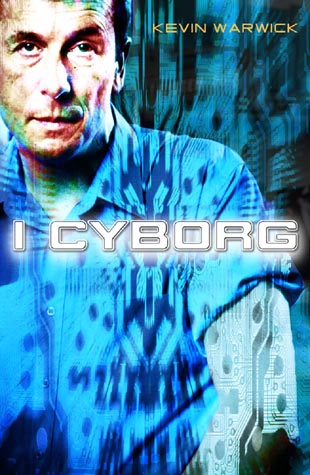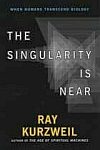Top 10 Singularitarians of All Time
Socrates / Uncategorized
Posted on: January 23, 2010 / Last Modified: January 23, 2010
The technological singularity is the event or sequence thereof likely to occur at or after the birth of AI, especially when Artificial Intelligence surpasses biological i.e. human intelligence.
Since it is human intelligence which, in one way or another, is still the primary cause and ultimate mover behind AI, there are a number of people who either had or continue to have enormous impact on the singularity.
Some of those are scientists who work diligently in fields as varied as Genetics, Robotics, Nanotechnology or Artificial Intelligence. Others are theorists and science fiction writers who have been the inspiration behind both the concept and the science, and have shaped the popular perception about what the singularity will, could or should be. Still others have been vehement critics who have either argued powerfully against or have taken direct action to prevent the singularity. It is all those people who, because of their lasting impact, I consider to be, broadly speaking, the top singularitarians.
So, who are the top 10 singularitarians of all time?
Singularity Weblog’s Top 10 Singularitarians of All Time
1. Ray Kurzweil
Without any doubt Ray Kurzweil is the most famous and widely recognized singularitarian. He is the person most responsible for the popularization of the concept of the technological singularity and is sometimes referred to as “the singularity prophet” (both in the positive and the negative sense of the word).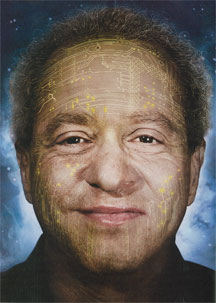
Ray is an inventor and well published futurist who, among other things is famous for: predicting the collapse of the Soviet Union; the rise of the Internet; believing that he can live forever; claiming that eventually he will bring his late father back from the dead; for writing persuasively about the Law of Accelerating Returns; for starting up a number of successful tech companies and for being one of the founders of Singularity University.
Some of Ray Kurzweil’s most famous books include: The Age of Intelligent Machines, The Singularity is Near, Transcend: Nine Steps to Living Well Forever. Ray has appeared in a number of documentaries about the singularity or technology in general, most notable of which are Transcendent Man and the Singularity is Near, which he wrote and produced himself.
2. Vernor Vinge
It was Hugo Award winner Vernor Vinge who coined the term technological singularity in his science fiction novel Marooned in Realtime.
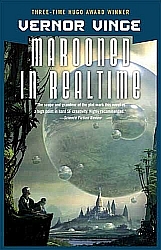 Arguably the second most recognized singularitarian, Vernor Vinge spent most of his life in San Diego, California where he still lives today.There he taught mathematics and computer science at San Diego State University for over thirty years. Today Vinge is sought widely as a public speaker and presenter for business, science, science fiction and general audiences.
Arguably the second most recognized singularitarian, Vernor Vinge spent most of his life in San Diego, California where he still lives today.There he taught mathematics and computer science at San Diego State University for over thirty years. Today Vinge is sought widely as a public speaker and presenter for business, science, science fiction and general audiences.
Vernor Vinge has won Hugo Awards for several of his books such as: A Fire Upon The Deep(1992), A Deepness in the Sky(1999) and for the novella Fast Times at Fairmont High(2001). Known for his rigorous hard-science approach Vinge first became an iconic figure both among cybernetic scientists and sci fi fans with the publication of his 1981 novella True Names, widely considered to be the visionary work behind the internet revolution. Later he gained even more public attention for his coining the term, writing and presenting about the technological singularity.
3. Karel Čapek
Karel Čapek earns his spot as a top 10 singularitarian for popularizing the term robot which was introduced in the 1920s by the Czech writer in his play R.U.R. (Rossum’s Universal Robots).
The play was situated on an island-factory for “artificial people” that Čapek called robots. Čapek’s robots looked like normal people and could think autonomously for themselves, yet, at least for a while, they seemed to be happy serving their human masters. Eventually, however, the robots rebelled, exterminated all humans and took over the world.
4. Isaac Asimov
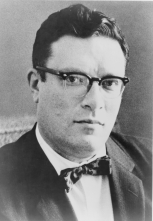 Isaac Asimov was a prolific writer who wrote or edited over 500 books but is most famous for his collection of robot short stories which were eventually published together under the common name I, Robot.
Isaac Asimov was a prolific writer who wrote or edited over 500 books but is most famous for his collection of robot short stories which were eventually published together under the common name I, Robot.
Following in Čapek’s footsteps Isaac Asimov’s earns his place among the top 10 singularitarians for coining the Three Laws of Robotics in his 1942 short story 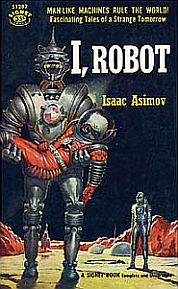 Runaround. The three laws state that:
Runaround. The three laws state that:
1. A robot may not injure a human being or, through inaction, allow a human being to come to harm.
2. A robot must obey any orders given to it by human beings, except where such orders would conflict with the First Law.
3. A robot must protect its own existence as long as such protection does not conflict with the First or Second Law.
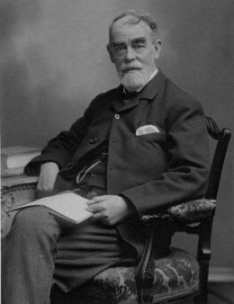 It was during the relatively low-tech mid 19th century that Samuel Butler wrote his Darwin among the Machines. In it, Butler combined his observations of the rapid technological progress of the Industrial Revolution and Charles Darwin’s theory of the evolution of the species. That synthesis led Butler to conclude that the technological evolution of the machines will continue inevitably until the point that eventually machines will replace men altogether.
It was during the relatively low-tech mid 19th century that Samuel Butler wrote his Darwin among the Machines. In it, Butler combined his observations of the rapid technological progress of the Industrial Revolution and Charles Darwin’s theory of the evolution of the species. That synthesis led Butler to conclude that the technological evolution of the machines will continue inevitably until the point that eventually machines will replace men altogether.
In other words, Samuel Butler was the first to claim that it was the race of the intelligent machines (AI) and not the race of men which would be the next step in evolution. He developed further that and other subsequent ideas in The Book of the Machines, three chapters of his book titled Erewhon, which was published anonymously in 1872.
In Erewhon Samuel Butler argued: “…that the machines were ultimately destined to supplant the race of man, and to become instinct with a vitality as different from, and superior to, that of animals, as animal to vegetable life.”
The above conclusion lead Butler to call for the complete destruction of all machines invented after the end of the 17th century.
6. Alan Turing
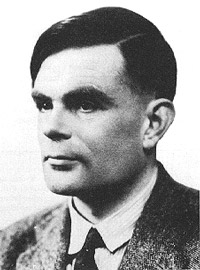 Alan Turing was a brilliant British mathematician often considered to be the father of modern computer science.
Alan Turing was a brilliant British mathematician often considered to be the father of modern computer science.
During the Second World War Turing was working for the British government at Bletchley Park and was the man largely credited with breaking the German Enigma machine cryptographic code. He was also a crucial figure behind the development of the so called Turing-Welchman Bombe which was an electro-mechanical type of a computing machine.
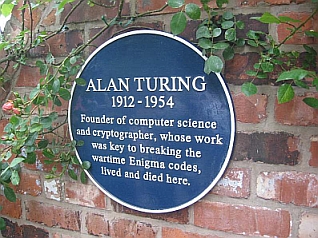 After the war Turing famously predicted that computers would one day play better chess than people and in 1950 published an article titled Computing Machinery and Intelligence where he introduced what he believed to be a practical test for assessing computer intelligence. (aka the Turing Test)
After the war Turing famously predicted that computers would one day play better chess than people and in 1950 published an article titled Computing Machinery and Intelligence where he introduced what he believed to be a practical test for assessing computer intelligence. (aka the Turing Test)
Alan Turing was a closet homosexual and, unfortunately, was convicted for indecency in 1952 because his homosexual relations were illegal in Britain at the time. He was forced to undergo chemical castration and as a side effect grew breasts. After his conviction, his security clearance was revoked and his reputation was destroyed.
![]() Unable to bear anymore humiliation, Alan Turing committed suicide on June 8, 1954 by allegedly biting an apple which he laced with cyanide. (It is in his honor that Apples’ logo today is a half bitten apple)
Unable to bear anymore humiliation, Alan Turing committed suicide on June 8, 1954 by allegedly biting an apple which he laced with cyanide. (It is in his honor that Apples’ logo today is a half bitten apple)
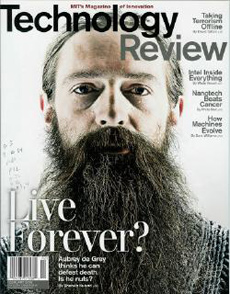 Aubrey de Grey was born in London, England in 1963. He is a controversial author and theoretician in the field of gerontology and is currently serving as a chief science officer at the Strategies for Engineered Negligible Senescence (SENS) foundation.
Aubrey de Grey was born in London, England in 1963. He is a controversial author and theoretician in the field of gerontology and is currently serving as a chief science officer at the Strategies for Engineered Negligible Senescence (SENS) foundation.
Dr. de Grey started out as a computer scientist by completing a BA at Cambridge University in 1985. According to his own words he married a biologist and decided to switch fields in the mid 1990s.
In the year 2000 Cambridge University awarded him a PhD for his book concerning a specific aspect of aging called The Mitochondrial Free Radical Theory of Aging. He is also the author of another popular and highly controversial book called Ending Aging: The Rejuvenation Breakthroughs That Could Reverse Human Aging in Our Lifetime.
It is in his second book where Aubrey de Grey proposes a road-map aimed at defeating aging by reaching what he calls longevity escape velocity — i.e. the point where humanity will possess the medical technology to extend healthy human life by a given period of time (e.g. a decade or two) during which time we will come up with even better technology thereby allowing us to extend life even more. Thus, by repeating this process over and over again we can stay one step ahead of the problem of aging and eventually will reach a point where we can extend healthy human life indefinitely.
Aubrey de Grey is an eccentric, controversial and highly recognizable figure. He has been a guest speaker for numerous TV programs and events such as CBS 60 Minutes, BBC, the New York Times, Fortune Magazine, the Washington Post, TED, Popular Science and The Colbert Report. Most recently Aubrey de Grey was the subject of the documentary film directed by Christopher Sykes Do You Want to Live Forever?. It is his highly controversial quest for immortality that earns Aubrey de Grey his top 10 spot on our singularitarian list.
8. Ted Kaczynski (aka the Unabomber)
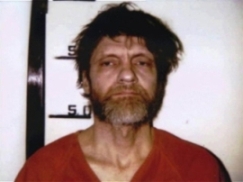 Ted Kaczynski was a genius child prodigy, brilliant mathematician, social critic, technophobic neo-Luddite, extreme environmentalist and murderous terrorist who was responsible for a series of bombings targeting universities and airline companies. His nickname the Unabomber originates from the FBI acronym “UNABOM” which stands for “UNiversity and Airline BOMber.”
Ted Kaczynski was a genius child prodigy, brilliant mathematician, social critic, technophobic neo-Luddite, extreme environmentalist and murderous terrorist who was responsible for a series of bombings targeting universities and airline companies. His nickname the Unabomber originates from the FBI acronym “UNABOM” which stands for “UNiversity and Airline BOMber.”
Kaczynski’s notorious bombing campaign lasted from 1978 until 1995. During that period he blew up 16 bombs and was responsible for the death of three people and the injuring of 23.
In Industrial Society and Its Future (aka the “Unabomber Manifesto”) he tried to explain, justify and popularize his militant resistance to technological progress. In essence, Kaczynski embraced the ideas of Samuel Butler but was not satisfied to simply write about the dangers of technology. Thus, even though the Unabomber didn’t think that the technological singularity will be a good thing, he believed in it so much that he had to try to prevent it by any means possible. It is for this reason that Kaczynski takes number 8 on our list.
Kevin Warwick is a professor of Cybernetics at the University of Reading, England, where he carries out research in artificial intelligence, control, robotics and biomedical engineering. Most notably he is the author of I, Cyborg a book where he documents how he became the world’s first cyborg in a series of ground-breaking scientific experiments.
Kevin’s research was selected by National Geographic International for a 1 hour documentary, entitled “I,Human” which was broadcast in 143 countries and translated into 23 different languages.
10. Charles Stross
 Charles Stross is a contemporary science fiction writer based in Edinburgh, Scotland. Some of this most famous sci fi novels include titles such as Accelerando (Singularity), Singularity Sky, Iron Sunrise (Singularity) and Saturn’s Children
Charles Stross is a contemporary science fiction writer based in Edinburgh, Scotland. Some of this most famous sci fi novels include titles such as Accelerando (Singularity), Singularity Sky, Iron Sunrise (Singularity) and Saturn’s Children.
It is his book Accelerando with its broad plot horizon (spanning time and space across the whole universe), with its dazzling imagination (fed by the latest and greatest bleeding edge of science and science fiction), and with its deep implications for the whole of humanity, that Charlie Stross beats the other honorable candidates and earns the last spot on our top 10 Singularitarians of all time.
Other honorable mentions who could have made the above list but just didn’t quite make it are: Gordon Moore, John von Neumann, I.J. Good, Norbert Wiener, Manfred Clynes, Hans Moravec, Marvin Minsky, John McCarthy, Philip K. Dick, Edsger Dijkstra, Nick Bostrom, Kevin Kelly, Hugo de Garis, William Gibson, Eliezer Yudkowsky, Ben Goertzel and Michael Anissimov.


